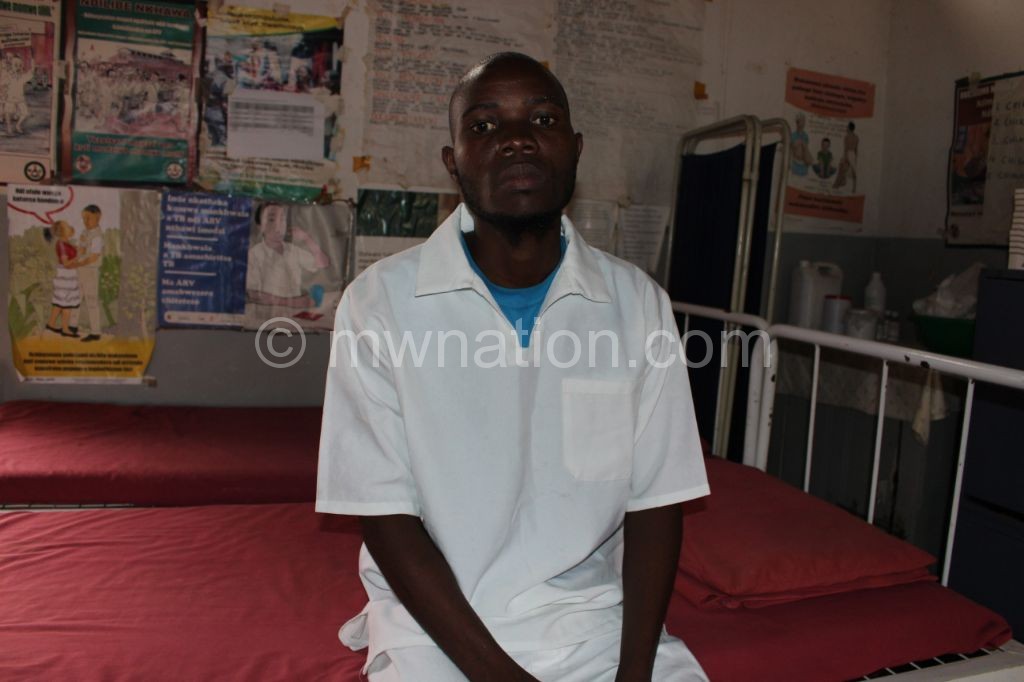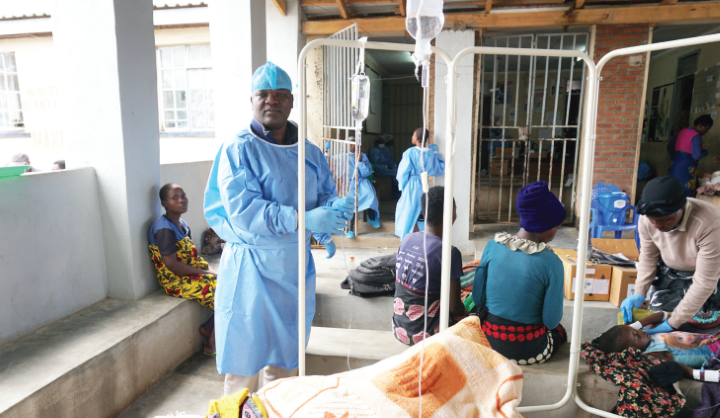Neglecting prisoners in TB prevention
Kingston Namviluwa rues the evening he entered Chikwawa Prison.
The 32-year-old from Traditional Authority (T/A) Mchilamwera in Thyolo, grew up hearing that the country’s congested prisons are a home to high rates of tuberculosis (TB) and other communicable diseases.

“I was raised in a God-fearing family. My father and mother never wanted their children to go to jail,” recalls the man who was jailed at Chikwawa Prison on January 11.
Namviluwa was sentenced to five years’ imprisonment with hard labour for buying a stolen motorcycle.
“I was running a grocery shop in Thyolo. So, I bought the motorbike from a friend to ease mobility and transportation of goods. I didn’t know that it was stolen property. Being a convict, is one of my worst moments,” he recounts.
He remembers bursting into tears as he and his fellow newcomers alighted from a police pick-up.
“I knew that I was entering a TB zone. This is one of the things that instilled fear in me,” explains Namviluwa.
His health deteriorated by the day. His body became frail. He could not run or exercise for five minutes. He coughed persistently. He sweated profusely at night. He was sickly.

On February 28, his 48th day in confinement, Namviluwa was diagnosed with TB when Chikwawa District Hospital, with support from TB Challenge, deployed a team to screen all inmates at the correctional facility.
He believes that congestion and lack of air vents in cells put him at risk of the disease which affects almost 17 000 Malawians, according to National TB Control Programme.
The prevalence is high in prisons.
“After testing TB positive, I remembered what my parents used to say. I thank the prison management for supporting us to access treatment. I am now in the final phase of the dosage. But if government works on prison congestion, TB in Prisons will be history,” says Namviluwa.
Chikwawa Prison officer in-charge Maxwell Kamowa blames the situation on poor ventilation.
“One of our major challenges is overcrowding in cells. The prison was designed to accommodate 200 inmates but currently has 458. To make matters worse, we don’t have air vents in these cells. We don’t have a separation cell for TB patients. This could be fuelling the spread of TB among inmates,” he says.
Congestion and unsanitary conditions represent common health hazards in all 32 prisons in the country.
The correctional facilities, run by Malawi Prisons Service, are supposed to hold 6 221 inmates—with each entitled to two square metres.
Unfortunately, they housed up to 14 600 in October last year—twice their capacity.
Kamowa wants government and nongovernmental organisations to fulfil their promises to install air vents in cells and construct separation wings for TB patients.
According to the prison official, the number of TB patients at Chikwawa Prison is rising.
The airborne disease is spreading like wildfire, he said.
“Something needs to be done urgently to save the lives of prisoners. Some partners promised to install air vents in the poorly ventilated cells, but they are nowhere to be seen. But we need these ventilation facilities and separation cells to prevent the spread of TB,” he says.
Dan Kang’ombe, who coordinates prison outreach at Chikwawa District Hospital, urged the inmates to consult medical personnel if they experience symptoms of TB.
“TB in prisons can be contained if inmates are screened regularly and if those found positive start treatment on time,” he explained.
Centre for Human Rights Education Advice and Assistance (Chreaa) which advocates for regular TB screening in all the prisons and reformatory centres, acknowledges.
Its programmes manager Joyness Dziwani named congestion as a major setback in the fight against TB in prisons.
She called for regular screening for each inmate before entering into the prison, during their jail terms and after serving their jail term.
“It is appalling that in all our prisons we talk of congestions. This puts prisoners at high risk of contracting TB and we will advocate for regular TB screening in all prisons. We have done this [TB screening] before which was effective. But if we put a mechanism in our prisons to screen inmates as they enter the prison, I am sure we can combat this disease,” says Dziwani.





